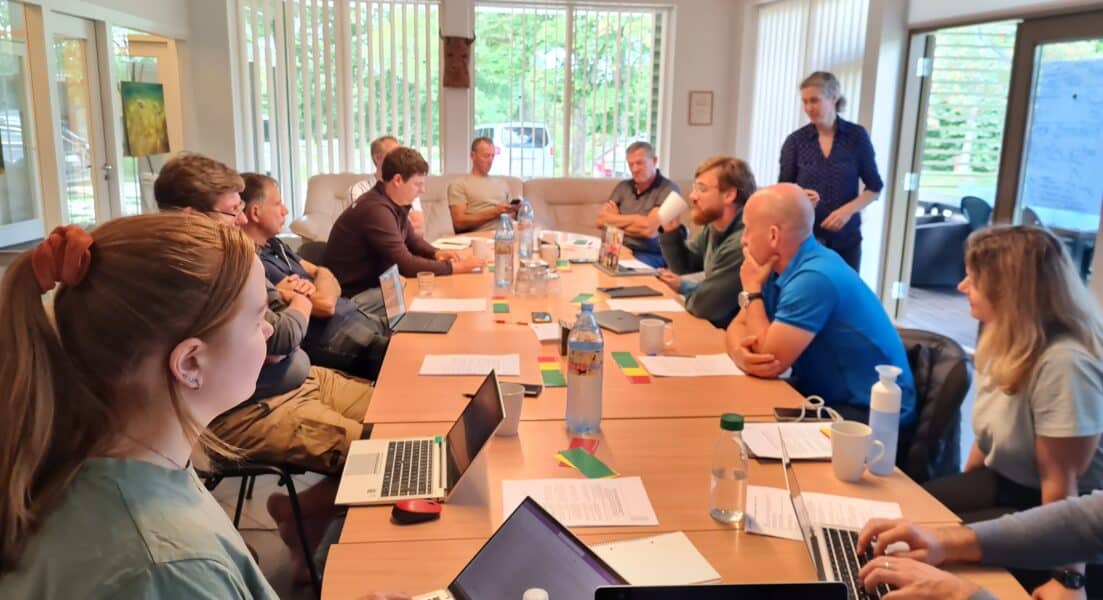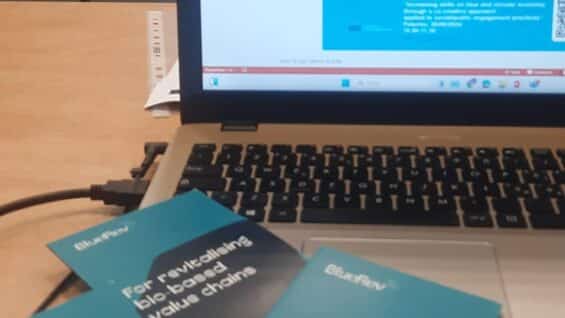Saaremaa fish farmers and algae producers met to discuss multi-use aquaculture and its contribution to sustainable development
On August 12th a seminar was held in Kõiguste harbor on Saaremaa island in Estonia to discuss the challenges and outlook for the multiuse low– trophic aquaculture in the region and to assess its relevance in the context of the Sustainable Development Goals. The sustainability assessment was part of the project OLAMUR focusing on testing off-shore low-tropic aquaculture in North and Baltic Sea.
The BlueRev project collected data on the new business models related to multiuse aquaculture that is the topic of interest and explored in the WP4. Previous workshop on new business models and interviews in Saaremaa pilot region demonstrated interest in growing seaweed in wind farms and growing seaweed and mussels in fish farms. As off-shore wind farms have been planned to west of Saaremaa island, the new business models building on multiuse of location and facilities for aquaculture could provide considerable eco-social benefits. However, at this point it is somewhat difficult for the stakeholders to envision the details of some blocks of the business model.
At present, there are ongoing experiments on growing mussels and seaweed in trout farms in Saaremaa. Mussels and seaweed help to capture nutrients and address the eutrophication that is considerable issue for the Baltic Sea. However, in terms of business model, the mussels and seaweed in the trout farms do not have commercial output yet in Estonia. Thus, this should be further explored in the context of sustainable business model development.







